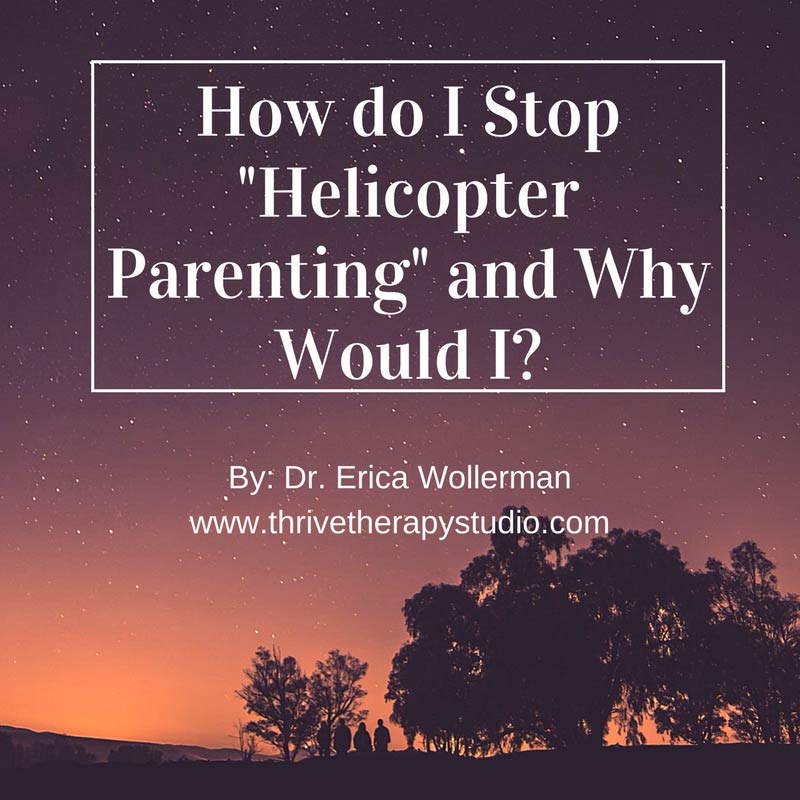Oh, helicopter parenting. What a divisive and polarizing term! Some parents are proud to call themselves helicopter parents, well, many say that they are “involved” or “not lazy parents,” while others are adamant that they are not helicopter parents. What does this term even mean? And is it really as much of a problem as some people think?
Rather than try to exactly define the idea of “helicopter” parenting, I’d rather give an example (completely fictional of course). Anna is the parent of two amazing kids who are in elementary school. Her belief as a parent is that it is her job to protect her kids from any kind of problem, harm, or damage that could come their way. Towards this goal, she spends a lot of her time fixing their problems. Here are a few examples of what that might look like:
- If they forget their homework, lunch, permission slip – she will rush to the school to bring it to them
- If they are in a fight with a friend, she always talks to the friends’ parent to help mediate the situation
- Rather than let them turn in homework that might not be their best work, she will at times help them to the point that she is doing the homework for them
Hopefully you get the idea! A big reason that I am writing about this today is that I find parents are often confused about how much to help their kids and how much to let them figure things out on their own. A lot of this debate comes down to how we perceive our roles as parents as well as how much of our child’s discomfort we are willing to tolerate as parents.
I believe that our job as parents is to prepare our children to be as resilient, resourceful, and capable as possible before they enter the world as adults. I have pretty much no doubt that most parents want this outcome for their children. However, I notice that parents also tell me that they just want their child to be “happy.” Interestingly, as a child and teen psychologist, your child’s happiness is not my first priority. This is partially because I don’t think happiness is in itself a goal, it is the byproduct of achieving other goals, plus I am more concerned about how your child handles failure, disappointment, and difficult feelings. How your child copes with adversity is far more telling with regards to how they are doing emotionally rather than their happiness at any given time. The other part of this for me is that I believe all emotions are necessary and important and that it is entirely unrealistic to focus so much on happiness. (If you want to read my previous blog about the happiness obsession, feel free to check it out here!).
In order to help our children be resilient, resourceful, and capable, we as parents have to give them opportunities to fall down, struggle, and completely screw something up so that they can learn that they can figure things out and get through tough times. Unfortunately, helicopter parenting does not allow our children these opportunities because parents so often swoop in and save their children from their consequences or from even making mistakes in the first place. The hard truth is that rather than preventing adversity, we need to let them cope with adversity so that they know they can and will have the confidence to face the world! Plus, as an added bonus, if you do this earlier in their lives (in age appropriate ways of course), they are more likely to be successful when they do venture out into the world for college or a job as an adult.
So, let’s say that I have talked you into reducing your helicopter ways. How do you do that? It can be really difficult to know how and when to pull back supports, especially if you have set up a pattern of ongoing, constant support. Here are some questions to help guide you in making decisions about pulling back supports:
- Is your child/teen capable of figuring this out on their own? * If your first instinct is to say absolutely not, remember to consider if this is your fear talking or coming from your own need to be needed. As a result of fear and our own needs, parents often underestimate their child or teen’s ability to handle problems.
- What would they do if you were not available?
- If you let them live with their mistake rather than fix it for them, will they learn a valuable life lesson?
- Can you work with them on finding a solution and then both work together to solve the problem, rather than you just taking care of it entirely?
I hope these questions help guide some of you in pulling back your support. Just keep in mind, I am not advocating for you to be cold, distant, or unloving in any way. Love your kid fiercely and tell them you are here for them but that you believe they can figure out a way to solve the problem. Just like if you were their math tutor and would hopefully not just give them difficult answers, but have them try to figure it out and then give suggestions as needed.
If you would like to talk with a Thrive Therapist about yourself, your child, or teen attending therapy, please reach out to us by phone at (858) 342-1304.
As always, thanks for reading and comments are always welcome regarding any issues around child or teen psychotherapy services in San Diego by Thrive Therapy Studio.
To stay in the loop on the services offered and to receive updated information about Thrive, please feel free to sign up for the newsletter through the following link: http://eepurl.com/cvGx5n.
Reach out to start
your healing journey


